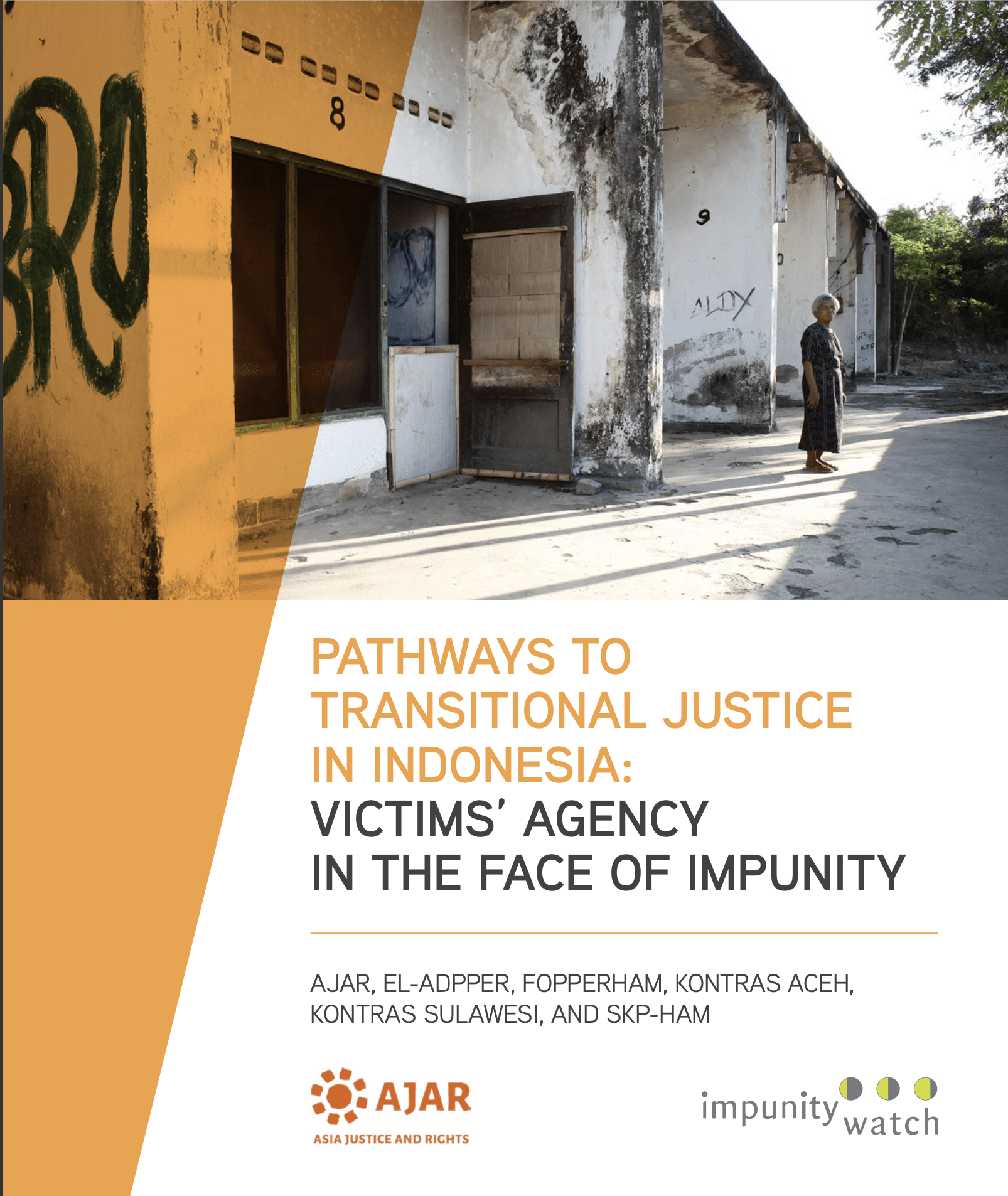Shrinking civic space in Indonesia jeopardizes citizens’ rights and hinders the steps necessary to achieve justice. Examples include: (i) despite solid support from civil society Aceh’s sub-national Truth and Reconciliation Commission had a delayed start because of the government’s lukewarm response; (ii) even though the Attorney General announced a new bill to establish a national truth commission, it was drafted without any real public consultation, and the national government appeared to shy away from any commitments to greater accountability; and (iii) Jakarta continues to respond forcibly to unrest in Papua, despite political reforms and the promise of a truth commission under the Special Autonomy Law.
There has been little accountability for past violence, and promises to acknowledge crimes, expose abuses, investigate violations, and undertake reconciliations made during ‘Reformasi’ in 1998, have remained largely unfulfilled. However, in spite of the above, survivors’ groups have made some progress, and have forged new paths toward transitional justice. Undeterred by the annulment of the 2004 truth and reconciliation commission law, and the now-defunct serious crimes court which acquitted 100% of the accused, survivors continue to advocate for human rights mechanisms to fill the void, and they have taken small steps to fulfil their rights. Importantly, survivors have forged a third pathway to achieve transitional justice, that is both steadfast and authentic.
Impunity Watch and Asia Justice and Rights conducted a study to capture the challenges facing transitional justice, focusing on how survivors have contributed to unofficial transitional justice processes. AJAR and partners interviewed and collected information from survivors representing various constituencies in five provinces – Papua, Aceh, Yogyakarta, Central Sulawesi, and South Sulawesi.
